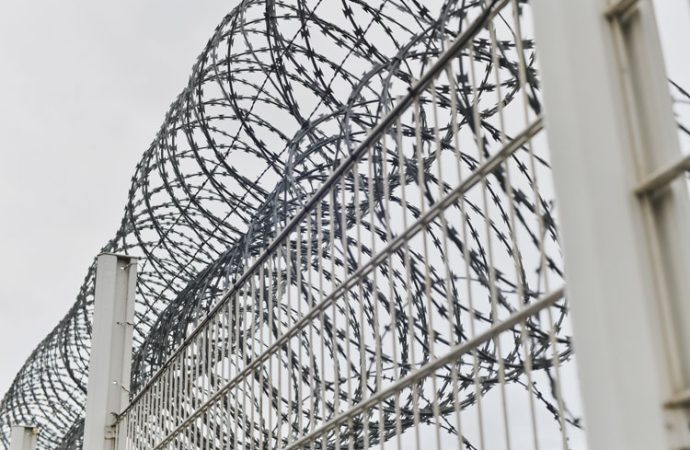Author Recent Posts Syed Alyaan Kazmi Latest posts by Syed Alyaan Kazmi (see all) Isreal – Palestine Conflict: Where will it takes us? – November 8, 2023 What attracts MENA nations to BRICS? (Can BRICS reshape Western dominance in the Middle East) – September 26, 2023 Producing electricity from nuclear energy in Pakistan. What are
Pakistan needs to recalibrate its options to carry out any cross-border operation against TTP in Afghanistan considering geopolitical and legal consequences. Following the US withdrawal from Afghanistan and the rise of the Taliban government in Kabul, Pakistan has witnessed an increase in TTP terror attacks within its borders. Consequently, Pakistan has consistently accused the Afghan government of harboring the terror group and failing to act, a breach of the Doha agreement. As Pakistan is currently evaluating its choices for potential cross-border operations within Afghanistan, it must be mindful of the potential impact on Pak-Afghan relations. Unfortunately, faced with an imminent political and economic crisis, Pakistan finds itself with limited options to execute such strategies. Furthermore, the contentious history of similar operations subjects such actions to scrutiny under international law.
A potential action against TTP inside will have serious geopolitical ramifications for Pak-Afghan relations. Recently, Pakistan’s Army chief issued a strong warning to the Afghan Taliban, urging them to halt their sheltering of TTP members or face a resolute response. In the past, several Pakistani ministers have leveled similar allegations against the current Afghan government, eliciting harsh reactions from the Afghan Taliban. Geopolitically, Pakistan finds itself squeezed between two turbulent international borders to the east and west. The potential cross-border operation, and subsequent strain on Pak-Afghan relations, could lead Afghan Taliban to exploit TTP as a proxy, inadvertently sparking an undeclared conflict. Moreover, such circumstances could reignite collaboration between India and Afghanistan, potentially destabilizing the region even further. Hence, any unfolding geopolitical shifts could constrain Pakistan’s ability to navigate a shifting regional landscape, complicating its strategic choices.
Due to the precarious economic situation and political instability, the execution of major cross-border operations in Afghanistan appears an unfeasible option for Pakistan. Per a UN report, Pakistan has been hosting approximately 3 million Afghan refugees for decades, with nearly half of them lacking formal registration. Economically, Pakistan is ill-equipped to manage a fresh wave of Afghan refugees, should a new cross-border operation start. Furthermore, the prevailing political instability within Pakistan adds to the challenges of pursuing such options. The crux lies in the fact that military actions hinge on political will and public backing. In the present context, Pakistan appears deficient in both aspects. Moreover, protracted military operations in Afghanistan demand a consistent supply of resources, a challenge Pakistan cannot meet amidst the ongoing crisis.
History is full of instances where states have resorted to employing force in self-defense against non-state actors across borders. Firstly, the aftermath of the 9/11 incident and the subsequent US war on terror established a precedent for cross-border actions against non-state actors in self-defense. The US intervened in Afghanistan, citing the Taliban’s support for Al-Qaeda in the 9/11 attacks. Similarly, Turkey has consistently conducted airstrikes against PKK hideouts in border regions of Iraq and Syria. Notably, Turkey’s ‘Operation Peace Spring’ targeted the PKK within Syria’s border zones. Furthermore, India has launched airstrikes against non-state actors in Myanmar and Bangladesh on multiple occasions. However, these actions are not immune to international opposition, as their legality remains subject to ongoing challenges.
Within the realm of international law, the issue of cross-border operations against non-state actors remains a topic of extensive debate. Article 2(4) prohibits States from using force “against the territorial integrity or political independence of any State, or in any other manner inconsistent with the Purposes of the United Nations. However, an exception lies in Article 51 which recognizes “the inherent right to individual or collective self-defense if an armed attack occurs. These articles are susceptible to diverse interpretations, particularly in the context of non-state actors, igniting contentious debates. The restrictive stance argues that any cross-border operation against non-state actors lacks legality without the host state’s consent. Conversely, the expansive perspective suggests legitimacy if the host state proves unwilling or unable of addressing these non-state actors.
In 2021, the US conducted airstrikes against Iraqi militia sites in Syria, citing the unwilling and unable doctrine without Syrian regime consent. This action gathered global censure and support from US allies. Notably, Russia, China, and Pakistan criticized it as an international law breach. In contemporary scenarios, should Pakistan mirror such actions against TTP hideouts in Afghanistan without the Afghan Taliban’s consent, legality becomes a pressing question. Furthermore, Pakistan’s key ally, China, might not endorse these actions, leading to multifaceted legal and moral implications.
In dealing with the issue of potential cross-border actions against TTP in Afghanistan, Pakistan needs a strategic approach. Despite failure of negotiations, Pakistan must ensure balanced geopolitical relations with Afghan Taliban. Pakistan also needs to strengthen surveillance of its border areas with Afghanistan. Further, supporting Afghanistan’s security forces through capacity building can empower them to counter non-state actors effectively. As Pakistan navigates these choices, it must balance historical examples, legal aspects, and regional dynamics. However, Afghan Taliban and TTP being the two sides of same coin and in case Pakistan decides to strike TTP’s safe haven, the relations between two countries can turn into a state of open hostility.
- Isreal – Palestine Conflict: Where will it takes us? - November 8, 2023
- What attracts MENA nations to BRICS? (Can BRICS reshape Western dominance in the Middle East) - September 26, 2023
- Producing electricity from nuclear energy in Pakistan. What are the safety processes? Examples of previous incidents like Fukushima - September 15, 2023












Leave a Comment
Your email address will not be published. Required fields are marked with *